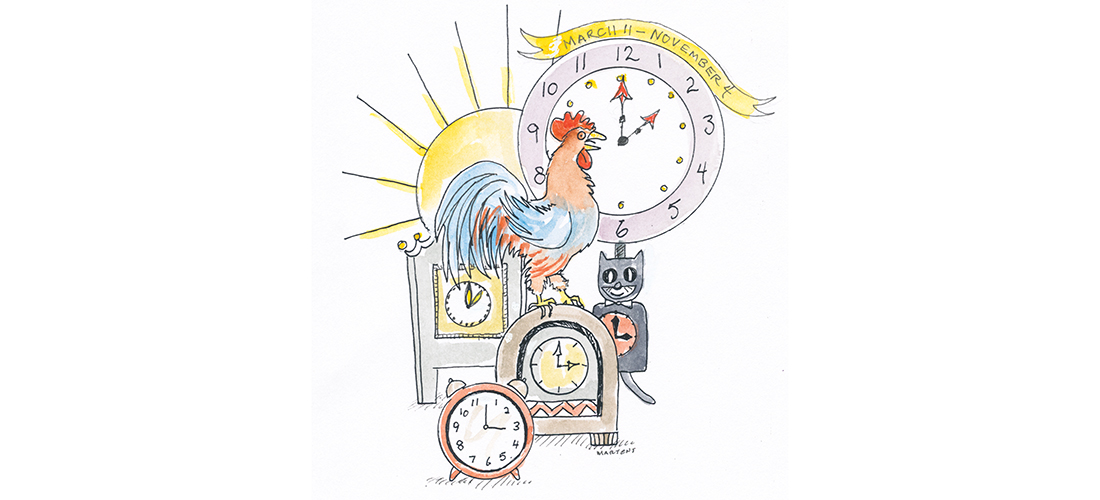
But only when the cows do
By Ray Linville
If it wasn’t for the railroads, we might not be losing an hour of sleep on the second Sunday in March when we spring forward and advance to daylight saving time.
The railroads, after all, are responsible for pushing us to adopt time zones in this country to improve communications and travel coordination. Until then, time zones were determined locally. Can you image the chaos if Raleigh and central North Carolina were on a different time than Asheville?
Actually, something similar did happen. From 1883 (when our country’s four time zones were established) to 1946, Asheville and points west in this state were in the central time zone while we kept time with others in the eastern zone. After time zones became standard, it was an easy step to create daylight saving time — and necessary during wartime as a fuel-saving measure.
Benjamin Franklin, famous for the maxim “Early to bed, early to rise, makes a man healthy, wealthy and wise,” knew better. He didn’t rise at daybreak, and he certainly didn’t want to see the sun an hour early. When he encouraged people to get up early — for the benefit of saving on candle use in the evening — he meant it as a joke.
Tar Heels might have more in common with Pennsylvanian Franklin than we realize. In 1945 when World War II ended, the federal requirement for “war time,” as DST was known, also ended. For decades, observance of DST throughout the country was inconsistent. However, North Carolina never observed DST again until 1966, when the state began following the national schedule.
The argument that DST benefits farmers was long ago debunked. Cows follow a schedule based on the sun, not the hour on our clocks. Even energy conservation today is questionable because any savings in reduced lighting are more than offset by additional demands for air conditioning in the summer evenings.
It was hard enough before the age of the internet to spring forward. Now it’s almost impossible. High schoolers are up late and get so little sleep that their parents are asking for later and later start times.
My granddaughter, Katie, now in seventh grade, has it bad. Because high school students can’t get up early, the middle schoolers win the first bus routes. She sets her alarm clock for 6:15 each school morning to get up for the earliest bus in her county. Imagine her joy for springing forward this month.
In contrast, when I was a teenager in the era of no social media or video games, I got up before sunrise to complete a morning newspaper route well before school began. That alone required that I went to bed early, regardless of Franklin’s advice.
Then in college I struggled to attend 8 o’clock classes. Yes, colleges used to have classes that early.
South Carolina may be leading the region in determining what choice is better — daylight or standard. One legislator has proposed a bill that lets voters decide in a referendum this November if that state should continue to observe daylight time. How would you vote?
For me, the decision would be easy. My days of springing forward are over. I’m with the cows. Sunlight determines my schedule, unless the railroads again have a better idea.
Ray Linville writes about Southern food, history and culture.





